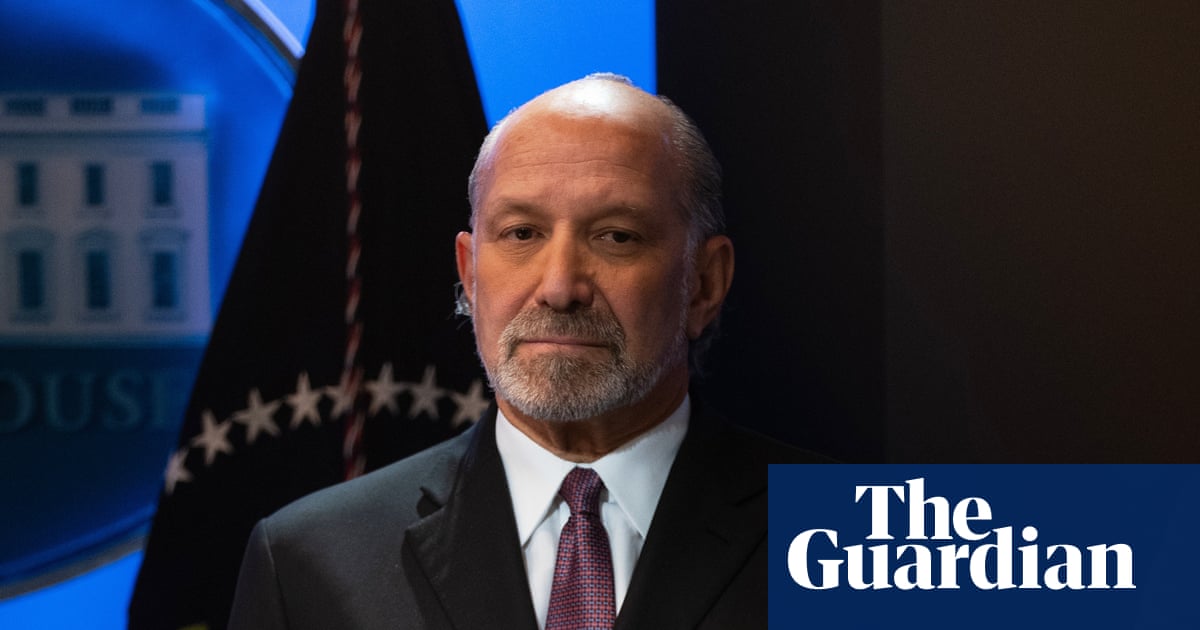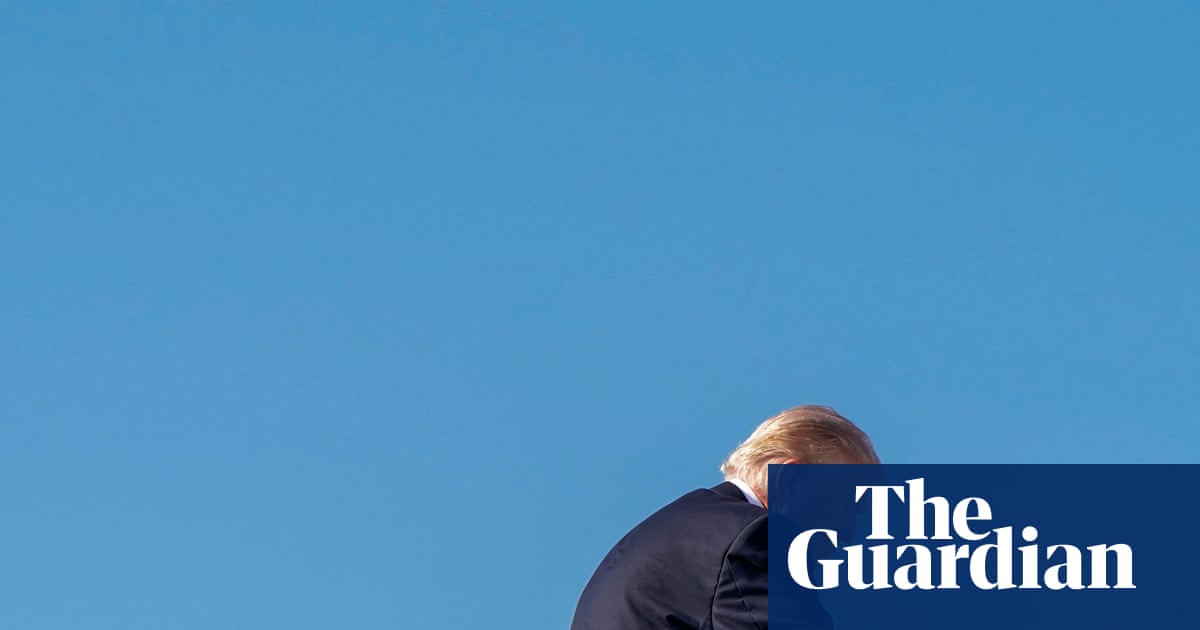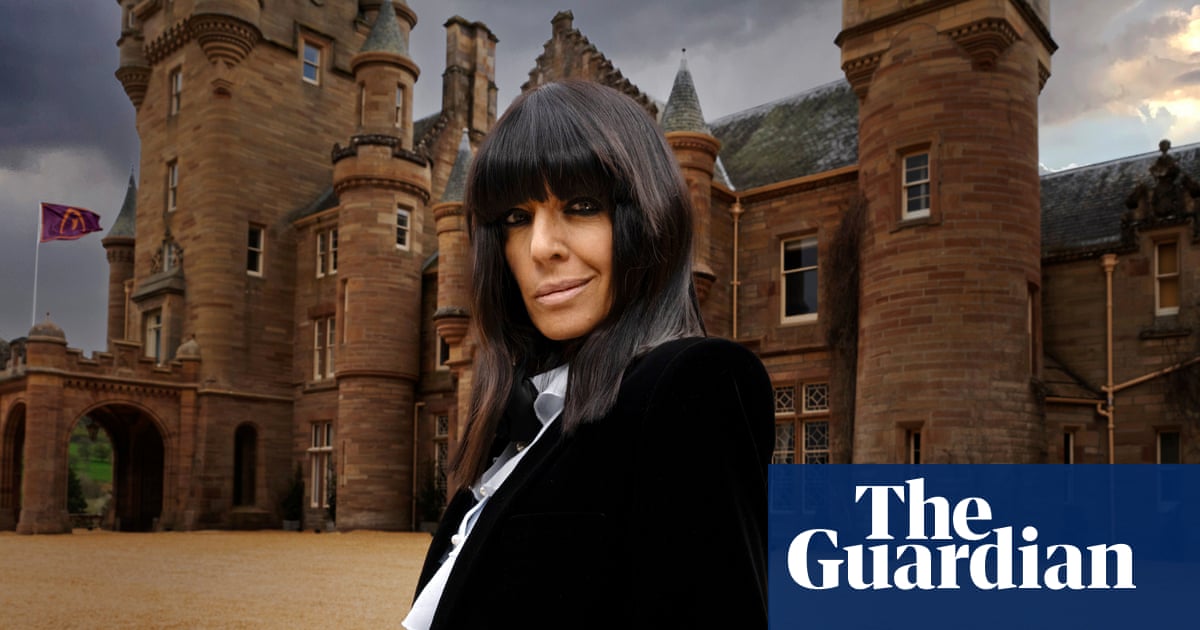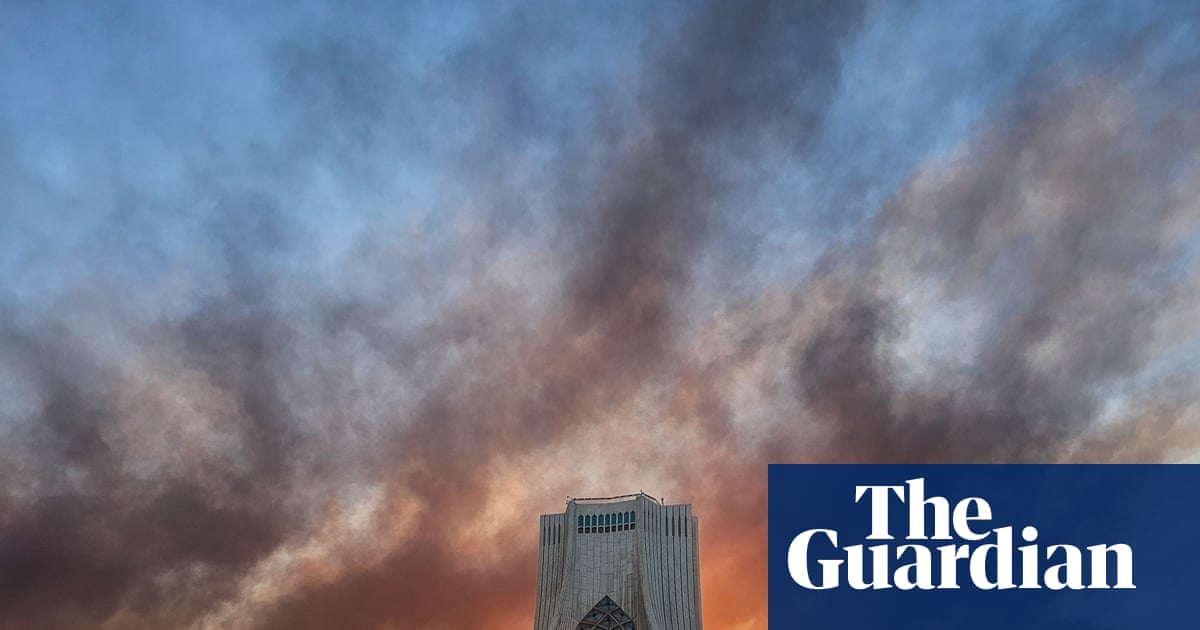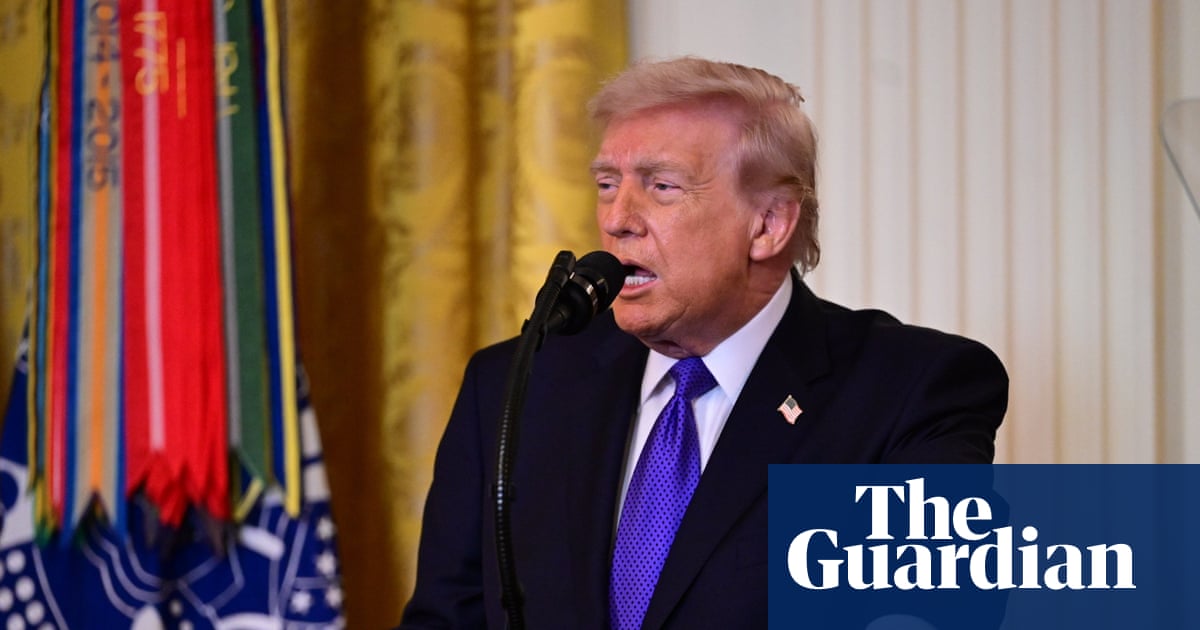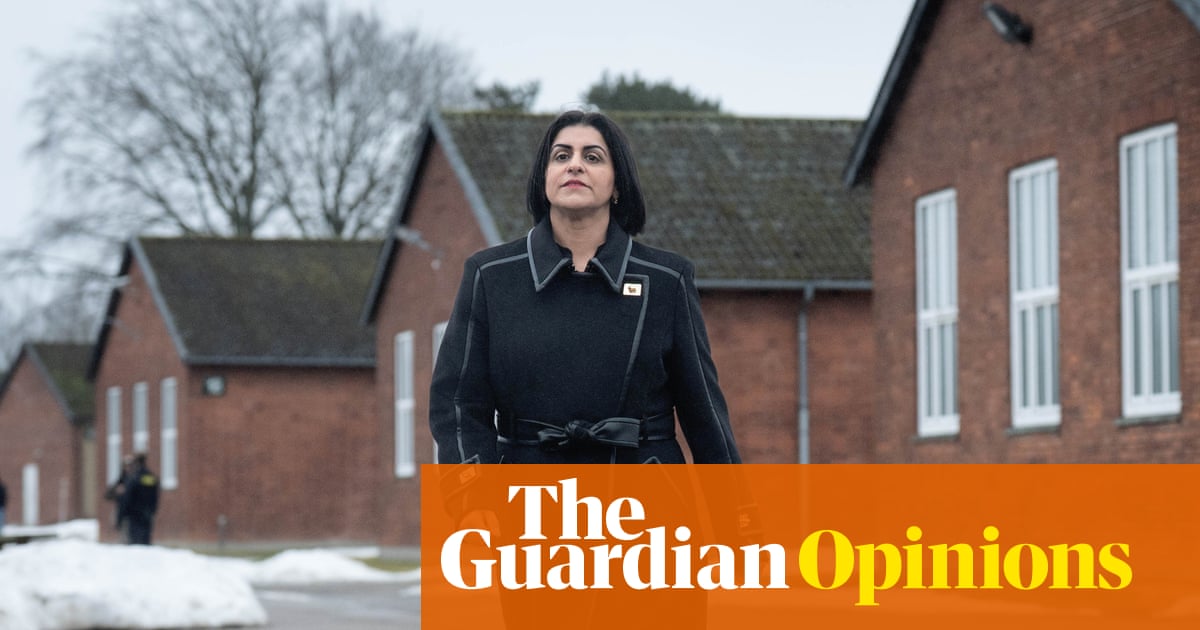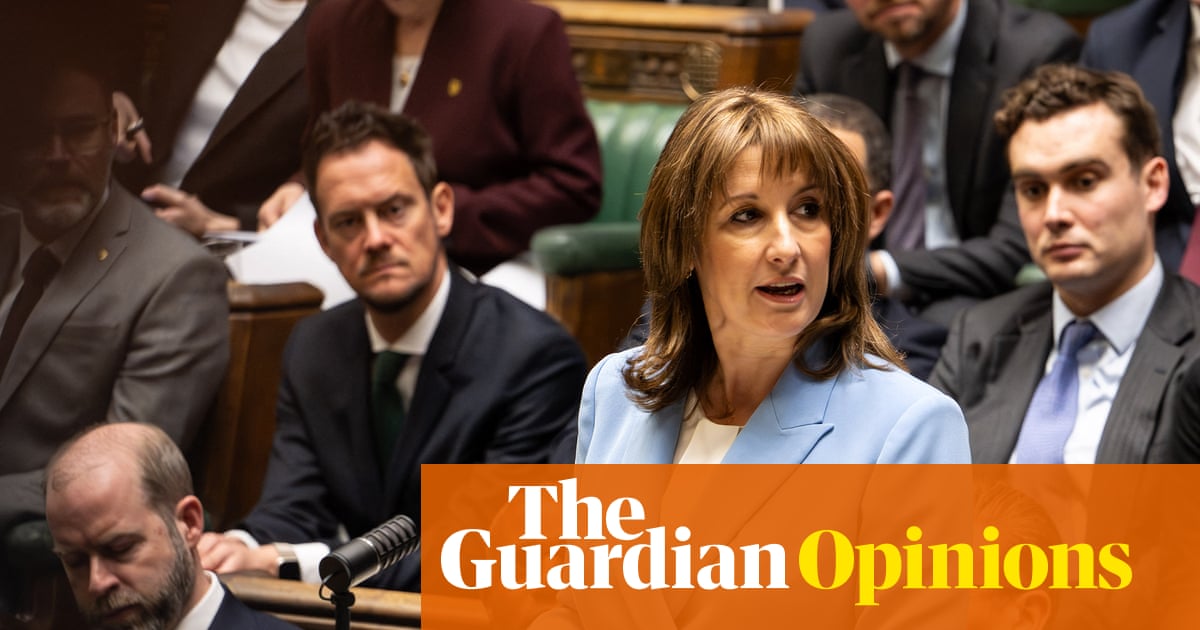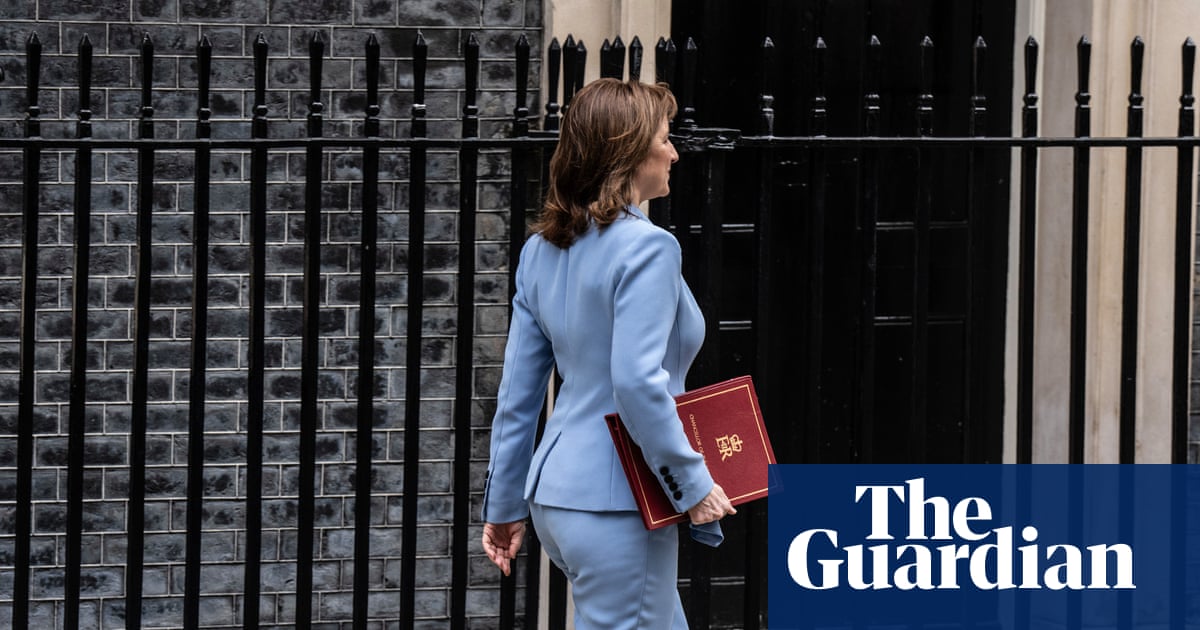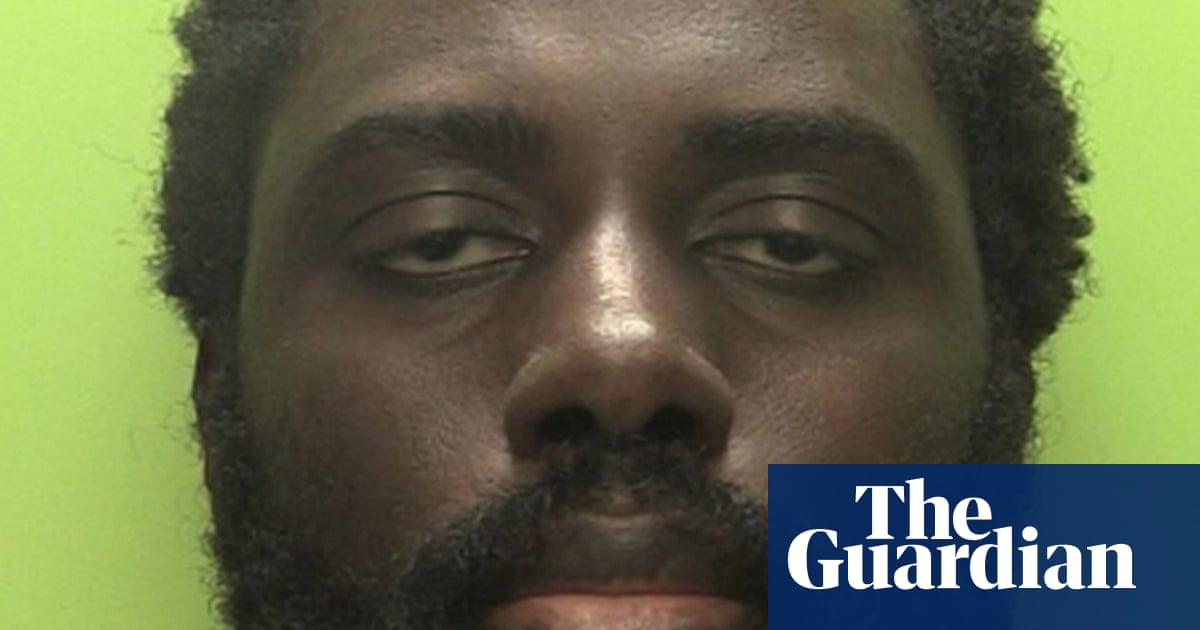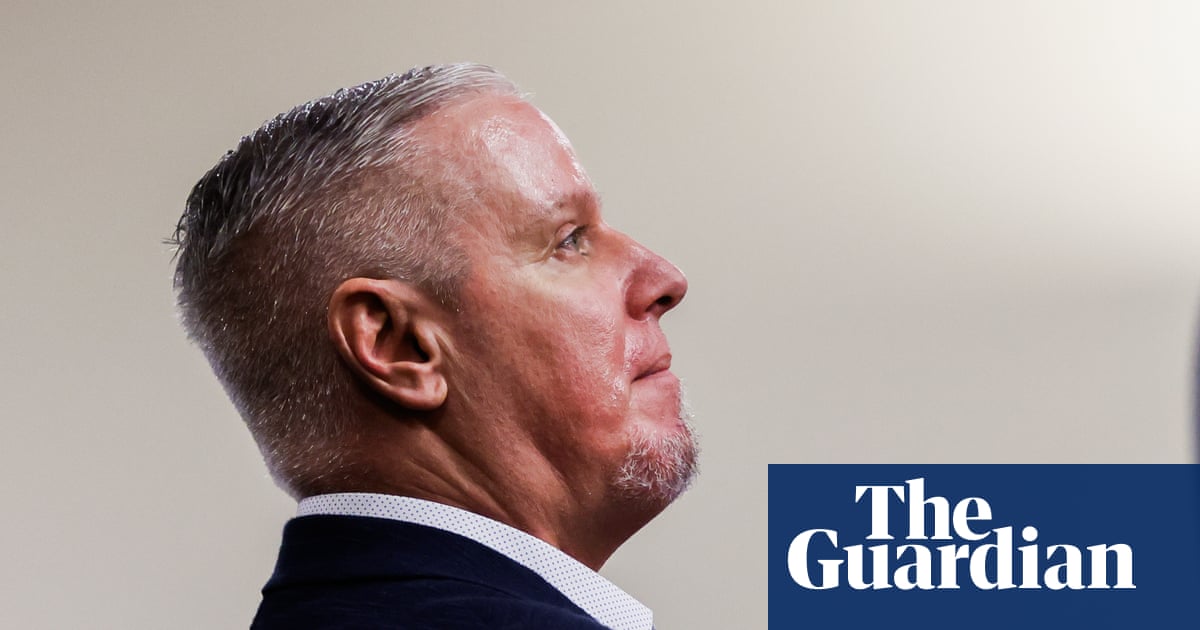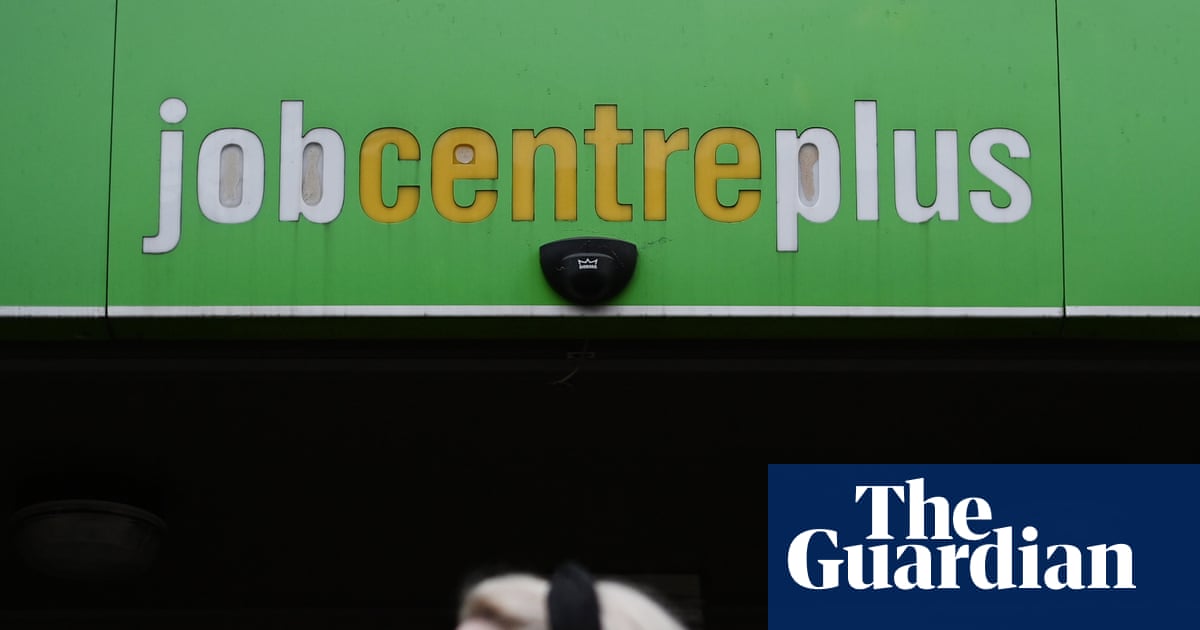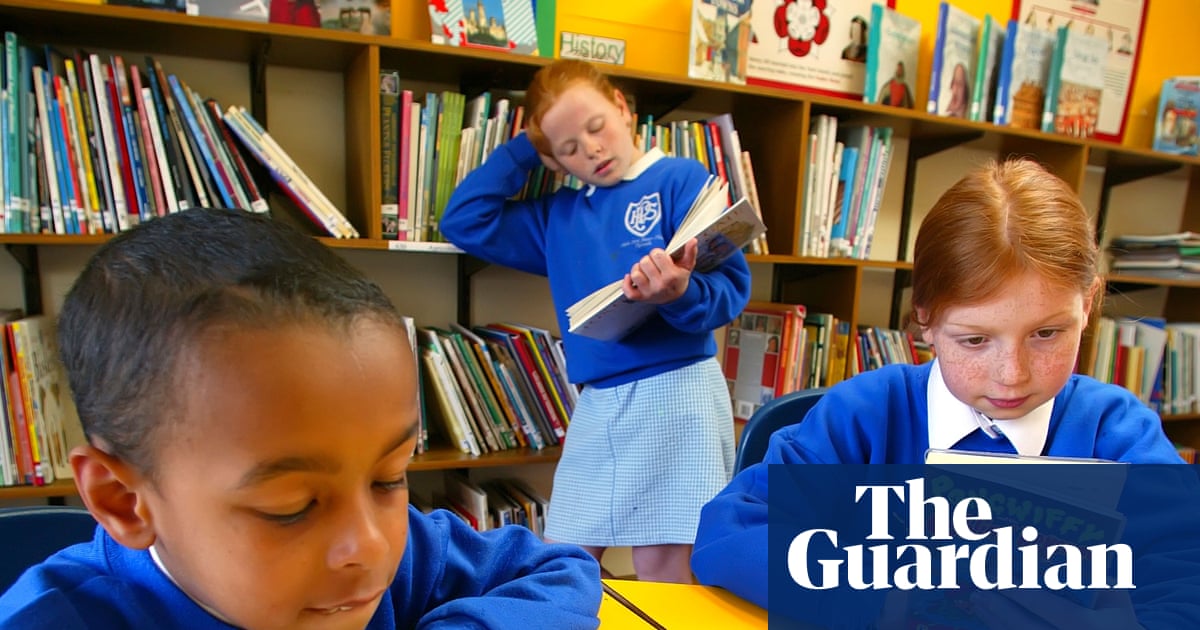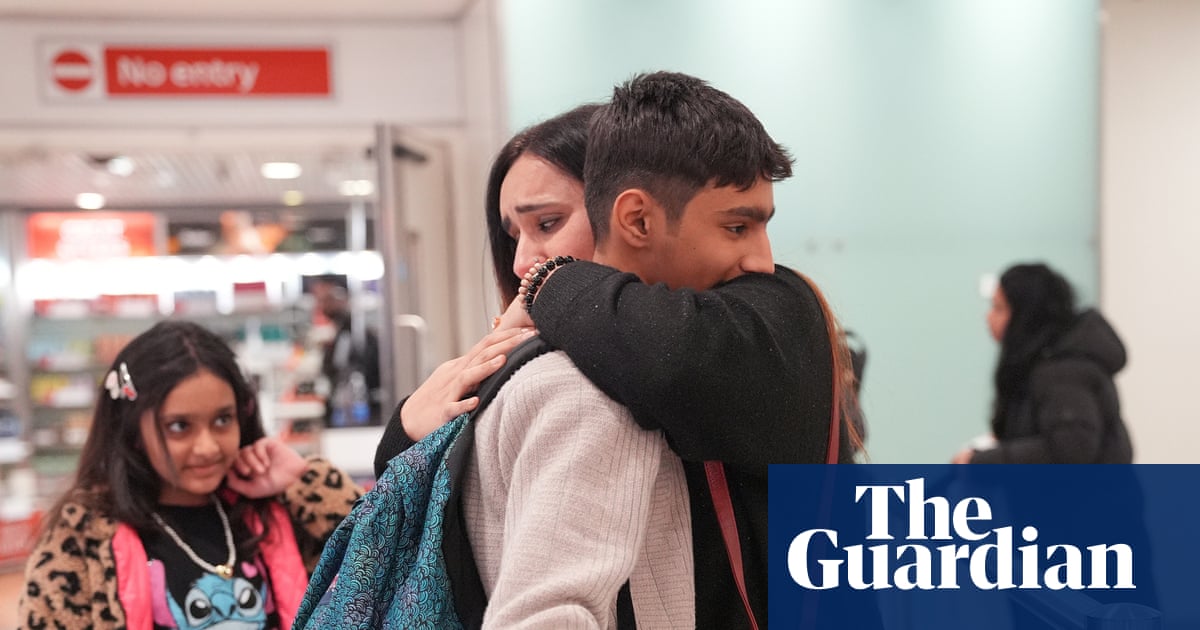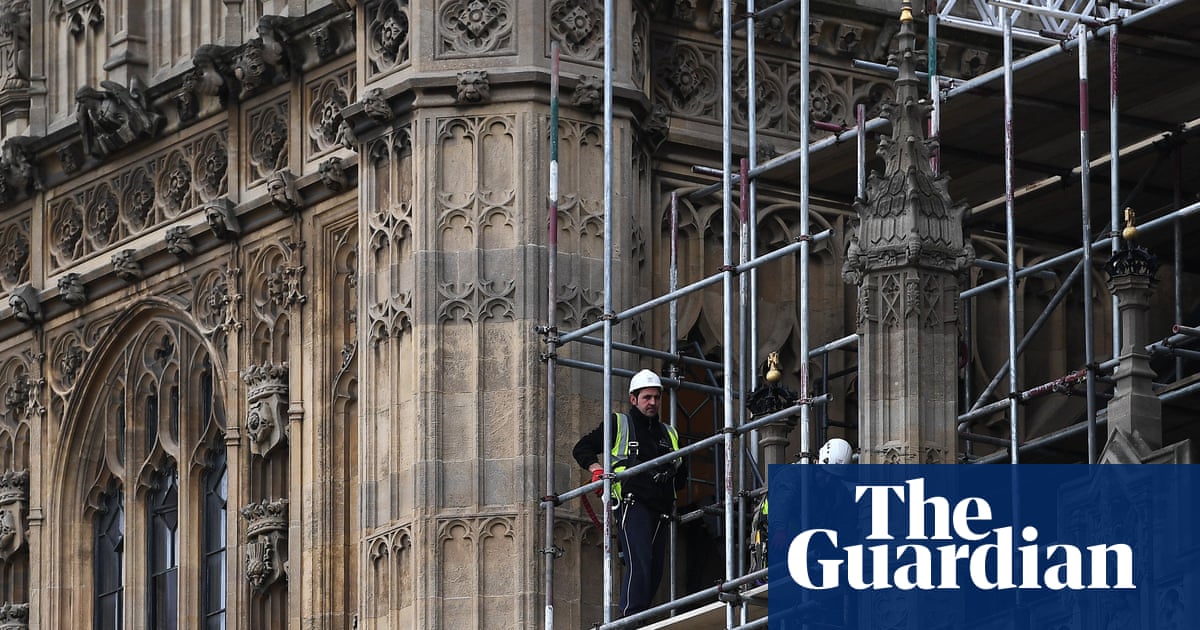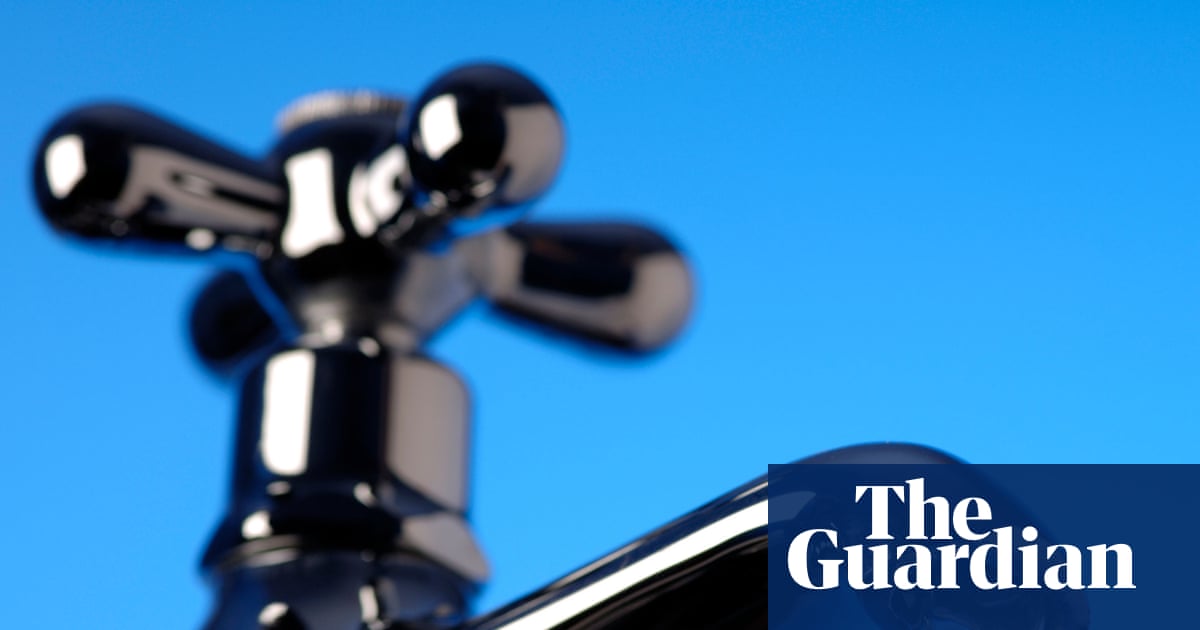Alison McGovern speaks to media about BBC crisis as culture secretary due to address MPs in attempt to contain fallout
LIVE Updated 5m ago
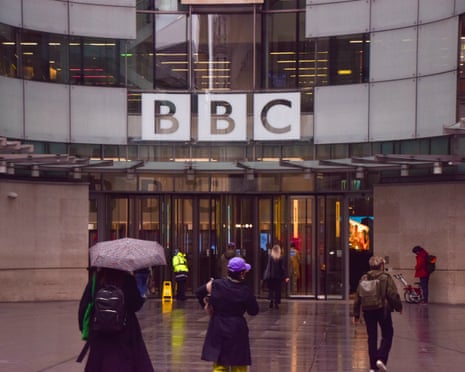
The BBC headquarters in central London. Photograph: Vuk Valcic/ZUMA Press Wire/Shutterstock
Show key events only Please turn on JavaScript to use this feature
Live feed
Minister suggests BBC should apologise to Trump over editing error - but doesn't comment on his $1bn lawsuit threat
Good morning. Yesterday the BBC in crisis story, that had primarily been about the resignations of its director general and its head of news, veered into international diplomacy when Donald Trump threatened to sue the BBC for $1bn over the way it edited a clip of the speech he gave before his supporters attacked the US Capitol and people working there on 6 January 2021.
This is obviously awkward for the government, not least because the BBC is funded with taxpayers’ money and so any payout to the president would ultimately come from them.
This morning there is quite a lot of legal comment around addressing the question of whether or not Trump has much of a legal case. I’ll summarise some of it later, but, bluntly, the answer is no. But a lot of this analysis falls under the heading of category error; Trump has launched several high-profile cases against US media organisations with little or no legal merit, and almost always they have settled, not because they thought Trump had a case, but because being in ongoing dispute with the White House created other risks and it was safer and easier to cave.
The BBC probably does not need the approval of the Federal Communications Commission for any deals in the US, but there are countless other ways that the Trump administration could make life difficult for it.
Perhaps Trump will just drop his legal threat and let the whole row blow over. For the BBC, and the UK government, that would be the ideal outcome. But it does not seem likely.
Lisa Nandy, the culture secretary, is due to make a statement to MPs about the BBC later. As well as addressing what can be done in the immediate term to restore confidence in the BBC, and what might be done in the medium term to give it a secure funding model (Reform UK was making the case for the abolition of the licence fee yesterday), she will also have to respond to questions about Trump’s threat. Not easy for a minister in a government where any criticism of the president is more or less banned.
Alison McGovern, the local government minister, has been doing interviews this morning. In an interview with Times Radio, asked about Trump’s threat to sue, she just said that was a matter for him and for the BBC.
I think the president can say what he wants, and he will do. And we know that.
Asked again about his threat, she replied: “Well, that’s for him, and the BBC, I’m sure, will respond to whatever happens. And that is for them to do.”
In a separate interview on LBC, McGovern was asked if the BBC should apologise to Trump for the way his 6 January 2021 speech was edited in the Panorama programme about him shown just before last year’s election. McGovern replied:
If they’ve made an editorial mistake, then they should apologise … I think the BBC is probably chock full of policies on what they should do when they make editorial mistakes, so I think they should stick to it.
Yesterday the BBC did apologise for the way the speech was edited in the programme. But that was in a letter to the Commons culture committee. McGovern seemed to be saying the BBC should apologise to Trump directly.
I will be mostly focusing on the BBC story today, but there is other politics around. Here is the agenda for the day.
9am: Keir Starmer is due to appear on ITV’s Lorraine, in a pre-recorded interview.
Noon: Downing Street holds a lobby briefing.
2.30pm: David Lammy, the deputy PM and justice secretary, takes questions in the Commons.
2.30pm: Peter Kyle, the business secretary, gives evidence to the Commons business committee.
After 3.30pm: Lammy is expected to make a statement about prisoner release mistakes, and Lisa Nandy, the culture secretary, is expected to make a statement to MPs about the BBC. Lammy will probably go first, but that has not been confirmed yet.
If you want to contact me, please post a message below the line when comments are open (normally between 10am and 3pm BST at the moment), or message me on social media. I can’t read all the messages BTL, but if you put “Andrew” in a message aimed at me, I am more likely to see it because I search for posts containing that word.
If you want to flag something up urgently, it is best to use social media. You can reach me on Bluesky at @andrewsparrowgdn.bsky.social. The Guardian has given up posting from its official accounts on X, but individual Guardian journalists are there, I still have my account, and if you message me there at @AndrewSparrow, I will see it and respond if necessary.
I find it very helpful when readers point out mistakes, even minor typos. No error is too small to correct. And I find your questions very interesting too. I can’t promise to reply to them all, but I will try to reply to as many as I can, either BTL or sometimes in the blog.
Key events Show key events only Please turn on JavaScript to use this feature
Starmer all but confirms that two-child benefit cap will be fully abolished in budget
Yesterday Rachel Reeves, the chancellor, gave an interview that indicated very strongly that she will get rid of the two-child benefit cap in full in the budget. It had been reported that the government was only going to partially remove it (by replacing the cap with a softer version, like a three-child benefit cap), but Reeves signalled that the cap will go in its entirety.
If anyone did not get the message, Keir Starmer has signalled exactly the same intention – only even more strongly. In an interview with Amir Khan, a doctor and ITV broadcaster, the PM said he was determined to drive child poverty down. In the clip, recorded yesterday but broadcast this morning, Starmer said:
I can tell you in no uncertain terms I’m determined to drive child poverty down. It is what the last Labour government did. And it’s one of the things we were proudest of. I am personally determined that is what we’re going to do.
You won’t have to wait much longer to see what the measures are. Some of them are already in place; the free school meals, the breakfast clubs, free childcare are all part of it.
But we need to do more than that. And I can look you in the eye and tell you I’m personally committed to driving down child poverty.
When asked again if he would get rid of the two-child benefit cap, Starmer said:
You won’t have to wait much longer. But I wouldn’t be telling you that we’re going to drive down child poverty if I wasn’t clear that we will be taking a number of measures in order to do so.
PM signals two child benefit cap could be lifted @DrAmirKhanGP asks Starmer if he will scrap the cap on @lorraine
'I wouldn't be telling you we're going to drive down child poverty if I wasn't clear that we will be taking a number of measures in order to do so', PM says pic.twitter.com/fWDeGIUGmi
Starmer’s words are significant because economists have argued that a partial abolition of the two-child benefit cap would not drive down child poverty. This is what the Resolution Foundation said in a report on budget options published last week.
It is unsurprising, then, that it is rumoured the government has been exploring options for partial reform of the two-child limit, most notably lifting the limit for working families only; moving to a three-child limit which would restore benefit entitlement for third children, but not for any fourth or subsequent child; and scrapping the limit in full, but then paying the UC child element at a reduced rate for third and subsequent children.
Each of these options would cost around £1bn less in 2029-30 compared to fully scrapping the policy.
But, crucially, as figure 10 shows, all of these partial-repeal alternatives would leave child poverty rates higher at the end of the forecast period than at the beginning (just under 32 per cent compared to just under 31 per cent in 2024-25), an outcome that is inconsistent with the government’s promise to be ambitious with respect to reducing child poverty.
And here is the chart (figure 10).
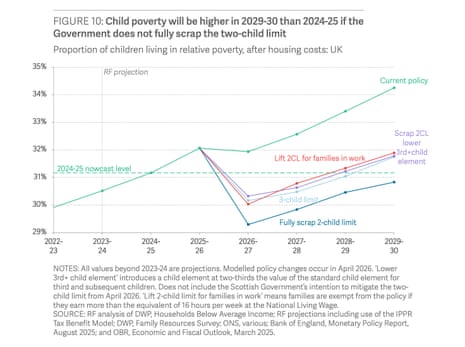
They read Resolution Foundation reports in No 10, and take them seriously. Torsten Bell, the Treasury minister who is one of the lead figures drawing up the budget, was chief executive of the Resolution Foundation until the last election. It is very hard to imagine Starmer saying what he did if full abolition of the two-child benefit cap was not now agreed.
Trump ally says BBC will win if case goes to court in Florida - but president likely to sue anyway as part of war on 'fake news'
On the Today programme, Christopher Ruddy, CEO of Newsmax, a rightwing news organisation in the US, and someone who has been a friend of Donald Trump for years, was interviewed about Trump’s threat to sue the BBC. Here are the main points he made.
-
Ruddy said that, if the BBC were to fight the case in the Florida courts, they would probably win. He explained:
The fact is, I’m from the state of Florida. I’m very familiar with the Florida libel laws.
I have no doubt the BBC misrepresented what the president said. And that’s pretty clear. I think everybody agrees, otherwise you wouldn’t have had those resignations.
I’m also very assured that if the BBC took the case to court, they would prevail. They would prevail because the state of Florida has pretty strong libel laws that defend media companies and free speech.
-
But Ruddy also acknowledged that other media organisations sued by Trump had decided to settle rather contest his claims. “What’s happening is that a lot of media companies would prefer not to go through the media spectacle of all this,” he said.
-
Ruddy said that, when Trump forced other media organisations to settle, he viewed that as proving his case that they were peddling “fake news”. Referring to the CBS and ABC lawsuits (see 9.22am), Ruddy said:
I think he sees these as victories … He sees this as legitimising his claims that there’s fake news, that the news is out to get him.
-
Ruddy said Trump regarded the BBC resignations announced on Sunday as a victory.
I congratulate that the BBC and people resigned, and they were held accountable. In American media organisation oftentimes you don’t see that and there’s not a sense of accountability.
The president sees this as a big victory for him in his claim the media is out to get him.
-
Ruddy said he thought there was a good chance that Trump would go ahead with his threat to sue the BBC.
He may very well sue the BBC because he’s had a winning record on bringing these suits.
-
Ruddy said that the fact that the BBC is funded by the taxpayer would not deter Trump.
I think that he he feels that there are very big wealth funded organisation and if they did him wrong then and he could be compensated for that. And I think he sees that as a win for him and a win for truth.
-
Ruddy said he did not think Trump would worry about legal action damaging his relationship with the UK government.
I do think that it [legal action] doesn’t hurt his relationship [with the UK government]. He has a very good relationship with Keir Starmer. He’s certainly widely respects King Charles.
He does not see this as impinging at all on the very good relationship that he has with Britain. I was with him at Windsor Castle, when he was there [for the state visit]. I think he and Melania felt that was one of the high points of his presidency so far.
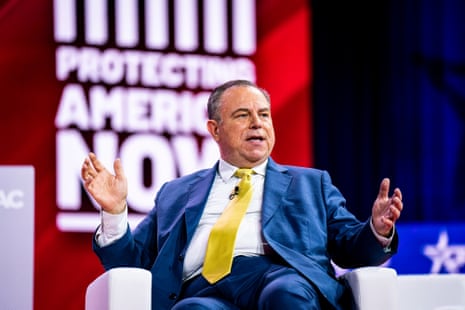
Tim Davie, the outgoing BBC director general, has arrived for work at Broadcasting House, according to the BBC’s live blog. He said he was “very, very proud” of the BBC journalists working in the building, adding:
The BBC is going to be thriving and I support everyone on the team.
He did not answer questions about Donald Trump’s proposed lawsuit.
How Trump has track record of using the law to threaten media organisations
Here is an analysis by Jeremy Barr of how Donald Trump’s threatened legal action against the BBC is just the latest example of how he has always used “legal threats and lawsuits to pressure news companies who put out coverage he does not like”.
Minister suggests BBC should apologise to Trump over editing error - but doesn't comment on his $1bn lawsuit threat
Good morning. Yesterday the BBC in crisis story, that had primarily been about the resignations of its director general and its head of news, veered into international diplomacy when Donald Trump threatened to sue the BBC for $1bn over the way it edited a clip of the speech he gave before his supporters attacked the US Capitol and people working there on 6 January 2021.
This is obviously awkward for the government, not least because the BBC is funded with taxpayers’ money and so any payout to the president would ultimately come from them.
This morning there is quite a lot of legal comment around addressing the question of whether or not Trump has much of a legal case. I’ll summarise some of it later, but, bluntly, the answer is no. But a lot of this analysis falls under the heading of category error; Trump has launched several high-profile cases against US media organisations with little or no legal merit, and almost always they have settled, not because they thought Trump had a case, but because being in ongoing dispute with the White House created other risks and it was safer and easier to cave.
The BBC probably does not need the approval of the Federal Communications Commission for any deals in the US, but there are countless other ways that the Trump administration could make life difficult for it.
Perhaps Trump will just drop his legal threat and let the whole row blow over. For the BBC, and the UK government, that would be the ideal outcome. But it does not seem likely.
Lisa Nandy, the culture secretary, is due to make a statement to MPs about the BBC later. As well as addressing what can be done in the immediate term to restore confidence in the BBC, and what might be done in the medium term to give it a secure funding model (Reform UK was making the case for the abolition of the licence fee yesterday), she will also have to respond to questions about Trump’s threat. Not easy for a minister in a government where any criticism of the president is more or less banned.
Alison McGovern, the local government minister, has been doing interviews this morning. In an interview with Times Radio, asked about Trump’s threat to sue, she just said that was a matter for him and for the BBC.
I think the president can say what he wants, and he will do. And we know that.
Asked again about his threat, she replied: “Well, that’s for him, and the BBC, I’m sure, will respond to whatever happens. And that is for them to do.”
In a separate interview on LBC, McGovern was asked if the BBC should apologise to Trump for the way his 6 January 2021 speech was edited in the Panorama programme about him shown just before last year’s election. McGovern replied:
If they’ve made an editorial mistake, then they should apologise … I think the BBC is probably chock full of policies on what they should do when they make editorial mistakes, so I think they should stick to it.
Yesterday the BBC did apologise for the way the speech was edited in the programme. But that was in a letter to the Commons culture committee. McGovern seemed to be saying the BBC should apologise to Trump directly.
I will be mostly focusing on the BBC story today, but there is other politics around. Here is the agenda for the day.
9am: Keir Starmer is due to appear on ITV’s Lorraine, in a pre-recorded interview.
Noon: Downing Street holds a lobby briefing.
2.30pm: David Lammy, the deputy PM and justice secretary, takes questions in the Commons.
2.30pm: Peter Kyle, the business secretary, gives evidence to the Commons business committee.
After 3.30pm: Lammy is expected to make a statement about prisoner release mistakes, and Lisa Nandy, the culture secretary, is expected to make a statement to MPs about the BBC. Lammy will probably go first, but that has not been confirmed yet.
If you want to contact me, please post a message below the line when comments are open (normally between 10am and 3pm BST at the moment), or message me on social media. I can’t read all the messages BTL, but if you put “Andrew” in a message aimed at me, I am more likely to see it because I search for posts containing that word.
If you want to flag something up urgently, it is best to use social media. You can reach me on Bluesky at @andrewsparrowgdn.bsky.social. The Guardian has given up posting from its official accounts on X, but individual Guardian journalists are there, I still have my account, and if you message me there at @AndrewSparrow, I will see it and respond if necessary.
I find it very helpful when readers point out mistakes, even minor typos. No error is too small to correct. And I find your questions very interesting too. I can’t promise to reply to them all, but I will try to reply to as many as I can, either BTL or sometimes in the blog.
Explore more on these topics

 3 months ago
95
3 months ago
95

